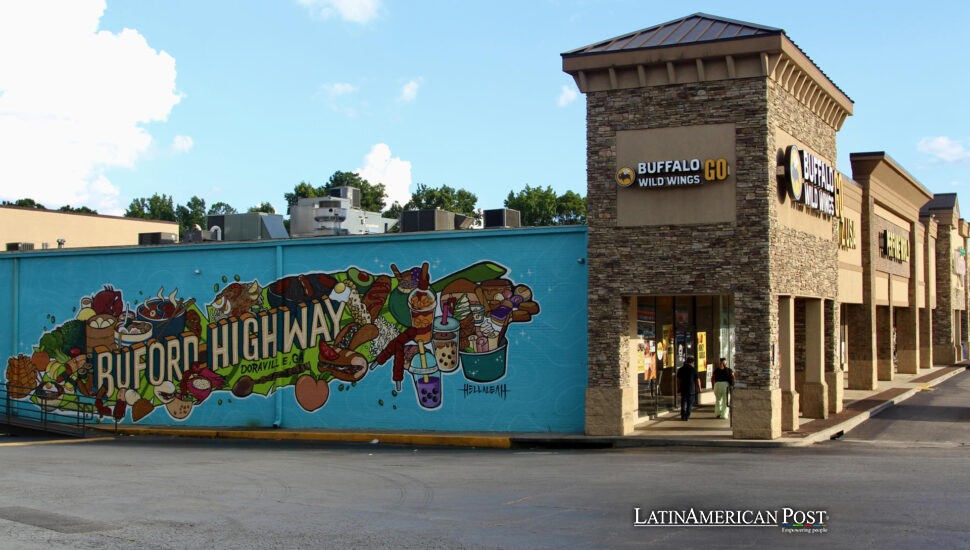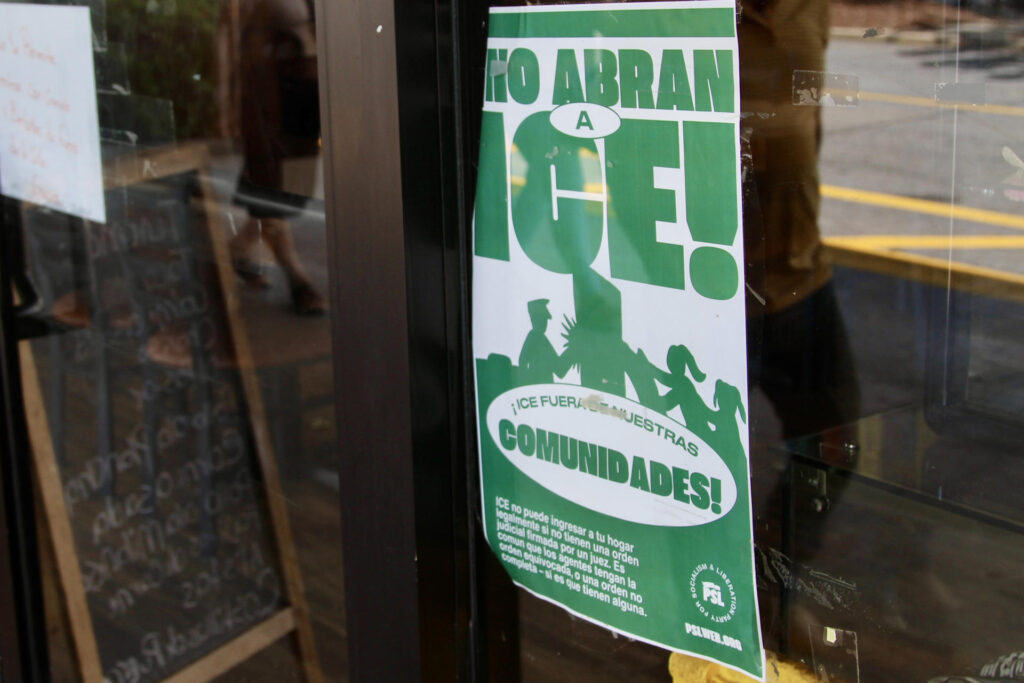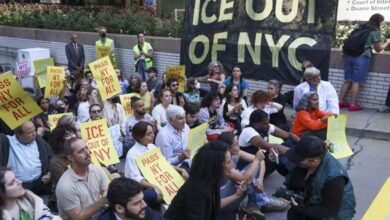Fear Shuts Doors on Atlanta’s Latin Corridor, but Buford Highway Refuses to Disappear

Across Buford Highway’s shuttered taquerías and half-empty salons, fear now outpaces traffic—but behind the silence, families, business owners, and community leaders are quietly resisting the chill of immigration raids with grit, rituals, and dreams that won’t back down.
Where Buzz Once Lived, Silence Settles In
On any other summer afternoon, Buford Highway—metro Atlanta’s vibrant cultural artery—should pulse with the rhythms of more than 50 languages. But on this sweltering July day, the sidewalk outside a discount supermarket in Brookhaven is nearly deserted. A Peruvian mother, flanked by three young daughters, hurries to her car. One of the girls clutches a traditional lliclla—an Andean carrying cloth—as though it might ward off sirens.
“We don’t go out unless we have to,” the mother told EFE, her voice barely above a whisper.
It wasn’t always like this. For decades, Buford Highway’s strip malls and mom-and-pop restaurants served as the beating heart of Atlanta’s immigrant South, where Korean grocers, Vietnamese tailors, and Mexican bakers built a community through shared hustle. Today, that heartbeat is faint.
Residents trace the shift to renewed immigration enforcement sweeps, sparked by former President Donald Trump’s pledge to ramp up deportations. Word spreads fast—through WhatsApp groups and whispered warnings: ICE agents in unmarked SUVs, detaining men outside apartment complexes at dawn. The threat is more than a rumor. It’s become a pattern, and it’s emptied the streets.
Small Businesses Bleed as Customers Vanish
Inside one of Buford’s many weatherworn strip malls, a Guatemalan tailor clocks in but leaves early most days now. Business is down. Fear keeps customers away.
“People are scared to shop,” a nearby cashier admitted to EFE, standing under rows of untouched papier-mâché piñatas. “They don’t want to be seen.”
Since spring, some stores have reported revenue drops of up to 50%, according to a quick survey by the Latin American Association. Restaurants that once thrived on lunch rushes now serve half-filled tables. Night markets—once pulsing with live cumbia and fusion food trucks—have been scaled back to daylight hours.
Lily Pabian, director of We Love Buford Highway, told EFE that she spends much of her time now just trying to convince immigrant entrepreneurs not to give up. “They feel like the ground is shifting under them again,” she said. “But this community has survived worse.”
Even so, layoffs are increasing, rent payments are slipping, and vendors who once planned expansion are holding back. Some now work on an hour-by-hour basis—waiting to see who shows up before they prep the grill or raise the gate.
Daily Life Under Siege
Fear along Buford Highway is more than economic. It’s psychological.
Psychologist Luis Alberto Rodríguez described the atmosphere as a low, persistent hum of dread. Parents teach children contingency plans—what to do if mom doesn’t come home, how to stay quiet, and where the birth certificates are hidden. Many families now keep “go bags” packed near the door: cash, ID copies, medications, just in case.
“You can feel it in your chest,” said a Mexican landscaper who watched ICE agents arrest his neighbors one morning. “You breathe in stress. You breathe out survival.”
The emotional toll runs deep. Doctors report rising blood pressure among elders. Teachers say students skip school rather than risk a parent’s disappearance. Father José Espinosa, a local Catholic priest, told EFE that his confessional line has tripled. “People aren’t praying for money or love,” he said. “They’re asking God for strength just to drive to work.”
City officials walk a tightrope. They rely on the corridor’s sales taxes but hold little sway over federal immigration actions. Doraville Police Chief Chuck Atkinson told EFE that his department doesn’t ask about immigration status—but rumors persist that ICE coordinates with local patrols.
And ICE, for its part, won’t confirm or deny schedules. The silence only breeds more fear.

Community Resilience, Against the Odds
Still, Buford Highway isn’t giving up. Not yet.
Pabian and her team at We Love Buford Highway have launched a small-business grant program, funded by Atlanta-based sponsors desperate to preserve the corridor’s unique flavor. Food trucks still roll—now rotating locations to avoid detection. Mutual-aid groups deliver groceries to elders who are too afraid to shop. Churches host “know your rights” clinics and distribute laminated cards with emergency instructions.
“We’re drawing from our ancestors now,” Pabian said. “They crossed deserts, oceans, borders—this is hard, but we’ve been through harder.”
One sign of quiet defiance came this summer at Plaza Fiesta, a Mexican-style indoor bazaar. On a warm Saturday night, despite the low turnout and hushed crowds, a mariachi band played in the parking lot. Children danced. Vendors handed out horchata and churros. “Every person there,” Pabian said, “was making a statement: ‘We’re still here.'”
Yet hope has its limits.
Immigration reform is stalled in Washington. Enforcement priorities can shift with an election—or a tweet. Locals are pushing for municipal ID programs, more language access, and renewed city-level support for immigrant entrepreneurs. And more than anything, they want a sense of safety to return—the ability to send kids to school without dread, to walk to the bodega without rehearsing worst-case scenarios.
“We need policies that see us as people,” Rivera said, gripping her daughter’s hand in the checkout line. “Not just names on a list.”
Also Read: Chile’s Disappearing Coastline: A Nation Reckons with the Loss of Its Beaches
Buford Highway may be quieter these days, but behind the closed doors and drawn blinds, resilience is gathering like thunder. This strip of asphalt built by immigrants isn’t just a business district—it’s a testament. And it’s not ready to vanish. Not now. Not ever.



